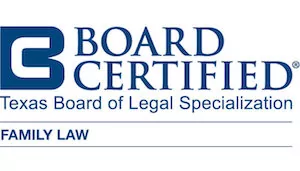League City Divorce Mediation Lawyer
When you divorce your spouse, your life can be turned upside down. Even as you mourn the loss of the relationship, you must figure out how to manage property, finances, and care for your children. In an ideal situation, you and your spouse will agree on everything when you separate. Life is rarely ideal, however.
Divorce mediation offers a middle ground between contesting your issues before a court and direct negotiation. The divorce lawyers at the Ramos Law Group have years of experience representing spouses in divorce mediation. Our founder, Mary E. Ramos, also mediates divorces. If you need a League City mediation attorney or divorce mediator, contact us to learn how the process would look in your unique circumstances.
What Is Mediation?
Mediation is a form of alternative dispute resolution designed to help parties avoid the high costs and slow schedule of court. When you hire a divorce mediator, you and your partner present the issues you need help resolving to a neutral third party. Then, the mediator works with you to help you come to an agreement.
Unlike litigation, mediation encourages open communication and cooperative decision-making. The process allows couples to maintain more control over their divorce terms rather than leaving decisions up to a judge. Property division, child custody, and support payments can be resolved with less conflict, reducing emotional and financial strain. A League City divorce lawyer can provide guidance before, during, and after mediation to ensure your rights remain protected throughout the process.
Voluntary vs. Court-Ordered Mediation
Couples seeking a divorce generally must attend mediation when a court orders them to. However, you can object if your spouse has subjected you or your children to family violence. Even if the court still requires you to attend mediation, you can request protective measures like avoiding face-to-face contact and being in separate rooms.
Some couples choose to begin mediation before officially filing for divorce, while others wait until after filing. Some attend mediation voluntarily, hoping to resolve disputes amicably, while others participate due to a court order. Until the final divorce decree is issued, mediation remains an option at any stage of the process.
How Does Divorce Mediation Work?
While mediation sounds good in theory, understanding how it works is crucial to many couples’ decisions to pursue it. Mediation allows you to resolve issues in a structured, semi-formal setting, avoiding the rigidity of the courtroom and the unstructured potential of negotiation and renegotiation.
Before Mediation
Before mediation, you and your spouse determine what issues you need help resolving. You will make a list of what to address and think through your ideal resolution. You also consult with your lawyer to plan how to approach mediation, set negotiation limits, and find areas of potential compromise. You also gather documentation of your assets and debts. You send many of the documents you prepare to the mediator and your spouse in advance of mediation.
Do your best to care for your health and well-being in the lead-up to mediation. Even though mediation is not as formal as court, it is understandably still stressful. Take as much time as you can to monitor your physical and mental health as you prepare.
At Mediation
You want to dress and present yourself well and bring important documents with you. Ultimately, the most important thing you can bring is a cooperative attitude. Sometimes, clients view mediation as an opportunity to make a point, but if you do, you miss out on the benefits mediation provides. Specifically, mediation offers you a chance to discuss and strategize with an unbiased third party who will often have unique perspectives to offer.
Negotiating Agreements During Mediation
During mediation, you and your spouse will discuss the key issues in your divorce with the guidance of a neutral mediator. Rather than imposing decisions, the mediator facilitates productive conversations, helping both parties explore possible solutions. This structured discussion allows you to express concerns, propose compromises, and work toward mutually acceptable agreements.
While the mediator remains impartial, your attorney is critical in protecting your interests. A League City family lawyer can help evaluate settlement options, determine whether a proposal is fair, and suggest alternatives when necessary. If a suggested agreement benefits one spouse more than the other, your attorney can help balance the terms by identifying potential trade-offs.
Mediation discussions typically cover topics such as property division, child custody arrangements, and financial support obligations. The goal is to reach a resolution that reflects both parties’ needs while minimizing conflict.
If you and your spouse agree on certain terms, the mediator will document them for review. Any unresolved matters can be addressed in future sessions or, if necessary, presented to a judge. With the right legal support, mediation provides a pathway to a fair, efficient divorce settlement.
Finalizing Your Mediation Agreement
Mediation may be resolved in a single session or require multiple meetings, depending on the issues involved and each spouse’s ability to find common ground. Once discussions conclude, the mediator will present a final proposed resolution based on the agreements reached. Both spouses can formalize the agreement into a legally binding document if they are satisfied with the outcome.
For a mediated settlement to be enforceable, it must meet specific legal requirements. The agreement must clearly state that it is not subject to revocation, and both spouses and their attorneys must sign it. Once these conditions are met, the agreement carries the same legal weight as a court order.
If you can’t reach an agreement on all issues, you may require additional mediation sessions or court intervention to address unresolved matters. A divorce attorney in League City can help you determine whether a proposed settlement is in your best interest and suggest modifications when necessary. Mediation allows for flexibility, and a divorce lawyer in League City can help ensure that any final agreement reflects your rights and priorities. Taking the time to review and finalize a fair settlement can make the transition smoother for everyone involved.
After Mediation
If mediation is successful, the next step is drafting a Final Decree of Divorce or other court order that reflects the agreements reached in mediation. This Final Decree of Divorce is submitted to the court for approval, making the terms legally binding and enforceable. This decree outlines all agreed-upon arrangements, including property division, child custody, and financial support. With court approval, both parties must follow the terms as stated.
If you can’t reach an agreement, litigation becomes necessary. You and your attorney can present your case to a judge, who will make a final decision on any outstanding issues. While litigation is typically more time-consuming and costly, it may be unavoidable if one party refuses to negotiate in good faith.
In cases where mediation resolves some, but not all, disputes, the judge can address the unresolved matters. Even if full resolution isn’t achieved, mediation often simplifies the process by narrowing areas of disagreement.
A League City divorce lawyer can help assess your situation, prepare for court if needed, and ensure your interests remain protected at every stage of the process.
What Are the Benefits of Mediation?
Texas courts strongly encourage couples to seek mediation when divorcing. Mediation provides many benefits, saving you and the courts time and money as you avoid the lengthy and costly trial process.
Mediation can also help you maintain the peace, as much as practicable, in your relationship. Because mediation is focused on mutual resolution, you can avoid a lot of the hostility that can arise when you face your spouse as opposing parties in court.
Significantly, mediation also allows you more control over the final outcome of your case. When you go to court, you argue for what you want, your spouse argues for what they want, and then the judge decides how to resolve your issues. Unfortunately, that sometimes means both parties walk away unhappy. In mediation, you can continue to negotiate until you reach a solution you are comfortable with.
When Mediation May Not Be the Best Option
While mediation is an effective way to resolve many divorce-related issues, it is not always the right fit for every situation. For mediation to work, both spouses must be willing to participate in good faith and openly discuss key issues. Reaching a fair agreement may be difficult if one party refuses to compromise or deliberately withholds financial or legal information.
Additionally, cases involving domestic violence, intimidation, or extreme power imbalances may not be well-suited for mediation. Even with legal safeguards, such as separate meeting rooms or virtual sessions, an unfair dynamic can make it challenging for one spouse to advocate for themselves. In these situations, litigation may provide stronger protections and allow a judge to make necessary decisions.
Mediation works best when both parties are committed to a respectful, solutions-based process. A divorce lawyer in League City can help determine whether mediation is the best approach or if court intervention is needed. No matter the path forward, having the right legal guidance helps ensure that your rights and priorities remain protected.
Should You Hire a Lawyer for Divorce Mediation?
You can represent yourself throughout the divorce process, including at divorce mediation. However, a lawyer with legal knowledge and experience negotiating is an invaluable resource. If you hire a League City divorce mediation lawyer from the Ramos Law Group, we can protect and fight for your interests the entire way. We can help you decide whether to attempt mediation, help you prepare for mediation if you pursue it, and sit by your side to support and advise you when it comes time.
Divorce is legally complicated on top of its heavy emotional toll. We understand how difficult the process is and take a compassionate, empowering, education-forward approach to family law. Contact us today to learn more about your options.










